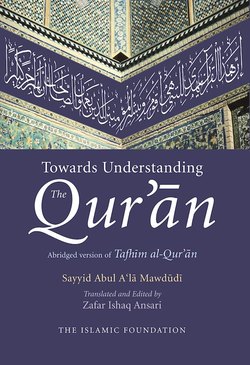Читать книгу Towards Understanding the Qur'an - Sayyid Abul A'la Mawdudi - Страница 22
На сайте Литреса книга снята с продажи.
ОглавлениеIntroduction
prescriptions, exhortation and admonition, censure and condemnation of evil-doers, warnings to deniers of the Truth, good tidings and words of consolation and good cheer to those who have suffered for the sake of God, arguments and corroborative evidence in support of its basic message, allusions to anecdotes from the past and to signs of God visible in the universe. Moreover, these myriad subjects alternate without any apparent system; quite unlike the books to which we are accustomed, the Qur’an deals with the same subject over and over again, each time couched in a different phraseology.
The reader also encounters abrupt transitions between one subject matter and another. Audience and speaker constantly change as the message is directed now to one and now to another group of people. There is no trace of the familiar division into chapters and sections. Likewise, the treatment of different subjects is unique. If an historical subject is raised, the narrative does not follow the pattern familiar in historical accounts. In discussions of philosophical or metaphysical questions, we miss the familiar expressions and terminology of formal logic and philosophy. Cultural and political matters, or questions pertaining to man’s social and economic life, are discussed in a way very different from that usual in works of social sciences. Juristic principles and legal injunctions are elucidated, but quite differently from the manner of conventional works. When we come across an ethical instruction, we find its form differs entirely from anything to be found elsewhere in the literature of ethics.
The reader may find all this so foreign to his notion of what a book should be that he may become so confused as to feel that the Qur’an is a piece of disorganized, incoherent and unsystematic writing, comprising nothing but a disjointed conglomeration of comments of varying lengths put together arbitrarily. Hostile critics use this as a basis for their criticism, while those more favourably inclined resort to far-fetched explanations, or else conclude that the Qur’an consists of unrelated pieces, thus making it amenable to all kinds of interpretation, even interpretations quite opposed to the intent of God Who revealed the Book.
xxi
